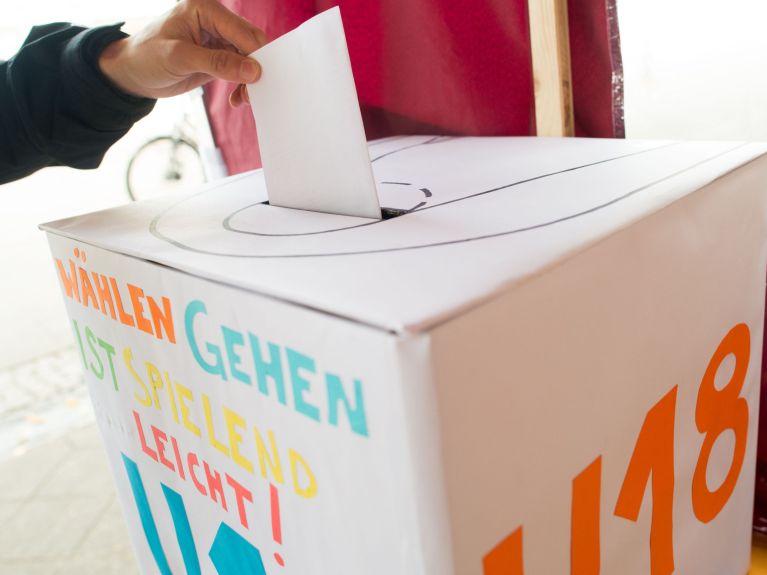Votes for young people – more than just a paper exercise
U18 Elections are held ahead of every election in Germany. They play a key role in political decision making.

Children and young people in Germany are getting the chance to vote in the elections for the Bundestag. It’s only for fun, of course: the voting age in Germany is 18. The "U18-Wahl" (U18 Election) is a chance to vote in a fictional national election for all children and young people aged under 18. Over 500 polling stations will be open across the federal state of Bavaria, according to the BJR (Bavarian Youth Council), which is coordinating the elections. The Federal Agency for Civic Education is supporting the elections across the whole country.
U18 Elections take place ahead of the official poll
For many years, U18 Elections have been held before the official polling days for Bundestag, European and state parliament elections. Polling stations are set up in schools, sports clubs and youth centres. Any institution which is politically neutral can host a polling station. An impressive number of children and young people turn out to vote. In Bavaria, for example, 60,000 under-18s voted in the state parliament elections.
Go and vote in the U18 Election and make yourself heard.
The point is to, “Show who you would vote for. Go and vote in the U18 Election and make yourself heard,” is BJR President Philipp Seitz’s message to young people. Politicians are listening to young people’s voices, too. Civic education for young people requires self-determined safe spaces for young people is the motto of the national network which supports the elections. The network includes the German Children’s Fund, the German Youth Council and many others. The network’s U18 Elections website provides detailed information on political issues and democratic processes. (with dpa)


